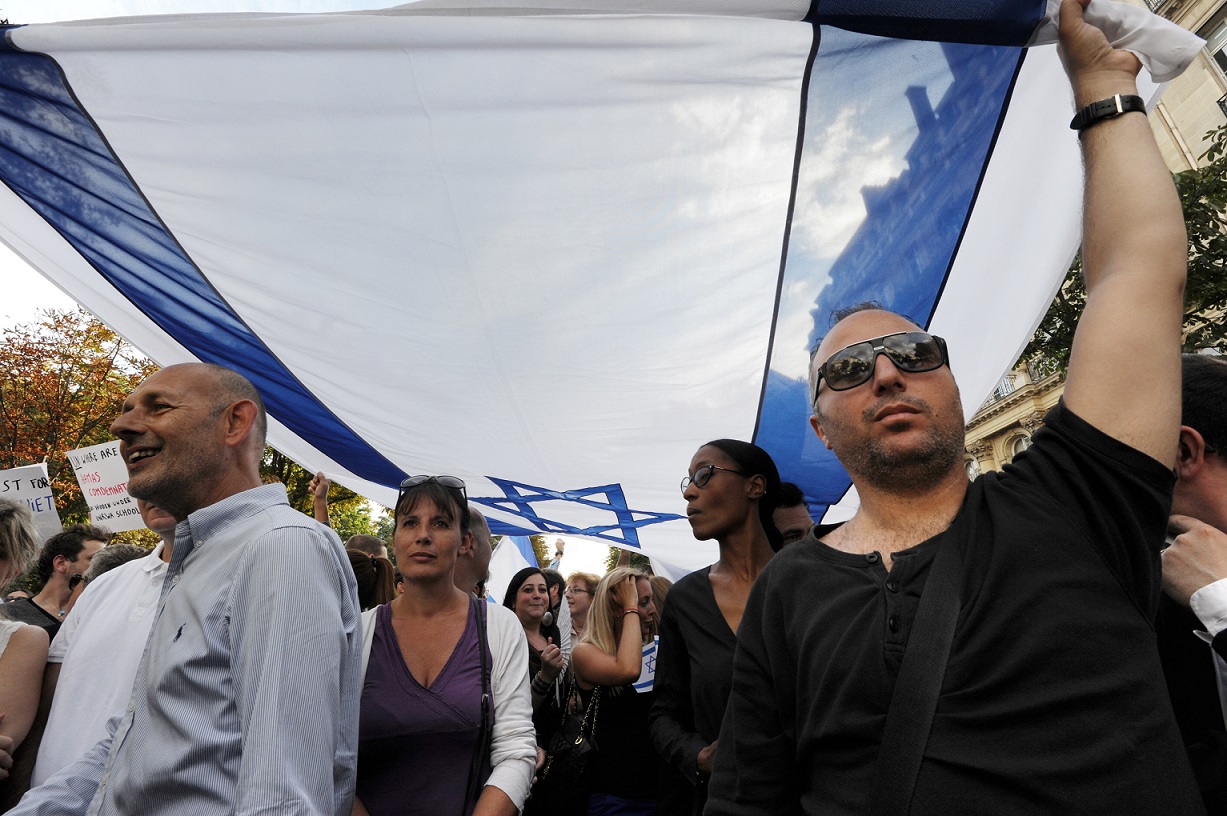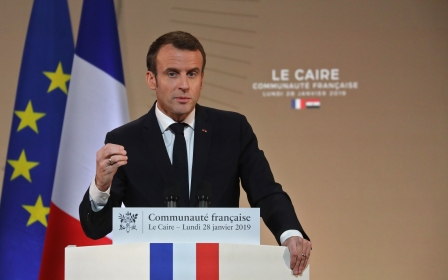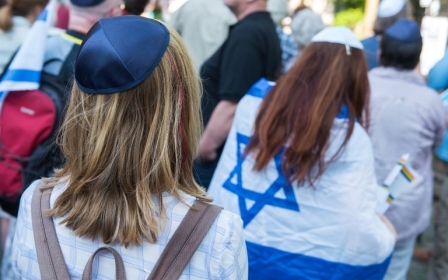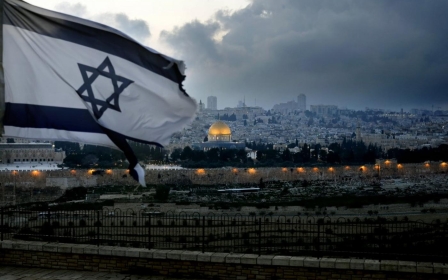France's IHRA resolution: Israel's lobby won the vote, but it won't silence support for Palestinians
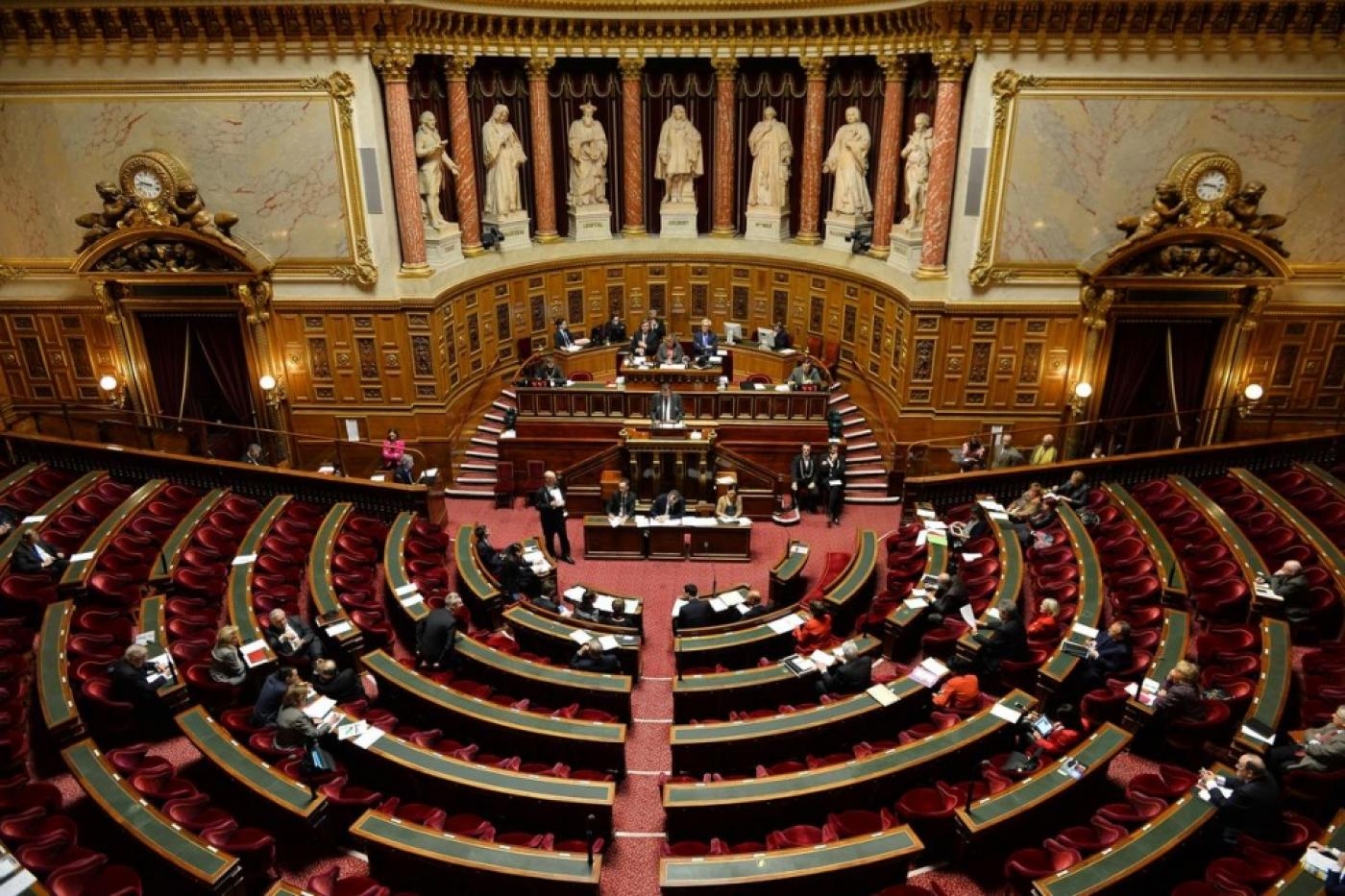
On 3 December in Paris, the French parliament adopted a resolution approving the International Holocaust Remembrance Alliance (IHRA) definition of antisemitism.
But the vote was far from unanimous, and the discomfort was such that the MP proposing the resolution, Sylvain Maillard, had to confirm in his official address that it “excludes the examples of the IHRA” - a statement that should considerably reduce the scope of this vote.
The unease felt by MPs revealed the violent clash between two logics: that of Israeli propaganda and its supporters in France, advanced under the mask of fighting “modern forms of antisemitism”, and that of the anti-racist and universalist tradition deeply anchored and active in France.
A weapon of Israeli propaganda
Israel’s strategy against the rights of the Palestinian people is comprehensive. Internationally, it has intensified further with the arrival of US President Donald Trump, and on the ground, it threatens the very existence of the Palestinian people. Attacking the voices that defend Palestinian rights, by trying to silence them, is an integral part of this strategy.
New MEE newsletter: Jerusalem Dispatch
Sign up to get the latest insights and analysis on Israel-Palestine, alongside Turkey Unpacked and other MEE newsletters
Imposing a definition of antisemitism linked to criticism of Israeli policy is one way of doing this. The IHRA in 2016 adopted a definition that deemed antisemitism to be “a certain perception of Jews, which may be expressed as hatred toward Jews”. A number of related examples were meant to “guide IHRA in its work”.
The haziness itself becomes a weapon, making it possible to cast doubt and suspicion on any criticism of the state of Israel and its policies
For Israeli propagandists, the trick was done. The introduction of these “examples” is at the heart of the Israeli strategy. The targeting of the state of Israel, “conceived as a Jewish collectivity”, is referred to as a manifestation of antisemitism, while “criticism of Israel similar to that leveled against any other country cannot be regarded as antisemitic”. Who can define the meaning of this comparison?
Such a hazy definition of antisemitism, which targets political opinions, would be unacceptable from a legal standpoint. But the haziness itself becomes a weapon, making it possible to cast doubt and suspicion on any criticism of the state of Israel and its policies.
The propaganda machine had already reached the UK, the European Parliament, Germany and other European countries, before France became its next target - but in France, promoters of the definition would come up against the very logic of the anti-racist struggle.
Fighting racism in France
The fight against antisemitism has its roots in the Dreyfus affair, a wave of hatred against French Jews at the end of the 19th century that led personalities of great conscience to engage in the anti-racist struggle. The complicity of the Vichy regime with Nazi Germany in the persecution and massacre of French Jews strengthened the fight against antisemitism as an essential component of the anti-racist struggle.
But this fight was never separated from the universal fight against racism and for human rights. This universalist tradition led to the active involvement of great French personalities, such as jurist Rene Cassin, in the drafting of the Universal Declaration of Human Rights following the horrors of the Second World War and the Nazi genocide.
As in many other countries, major human rights and anti-racism organisations are engaged in the fight against all forms of racism. French media law punishes hate speech, and criminal law punishes discrimination, particularly of a racist nature.
The National Consultative Commission on Human Rights brings together major human rights organisations and recognised personalities in France, and it is mandated by law to prepare an annual report on the fight against racism, antisemitism and xenophobia in the country. In its 2018 report, it took a stand against the IHRA definition, saying it was contrary to French legal tradition and its “examples” relating to Israel deviated from its stated objective.
By contrast, the Representative Council of French Jewish Institutions (CRIF) has continued its drift towards an increasingly strong allegiance to Israeli policy, going so far as to demand that President Emmanuel Macron follow Trump’s initiative to recognise Jerusalem as the capital of Israel, in violation of international law.
Offensive by the Israel lobby
Shortly after his 2017 election, Macron denounced anti-Zionism as “the reinvented form of antisemitism”, sparking a backlash among intellectuals, historians and other associations and NGOs.
But in February of this year, a sequence of events affected public emotion. Amid statistics showing a sharp increase in antisemitism, a Jewish cemetery was desecrated, bearing the usual signs of far-right antisemitism, and a video of Yellow Vest demonstrators throwing antisemitic insults at a French philosopher made a lasting impression.
The idea of a law prohibiting anti-Zionism was then advanced by MPs supporting the pro-Israel lobby, before being quickly dismissed. But on 20 February, at the annual CRIF dinner, Macron again equated anti-Zionism with antisemitism, announcing that France would implement the IHRA definition.
In a deeply divided France, many MPs felt that they should engage globally in the fight against all forms of racism, without favouring one form over others.
Palestine solidarity organisations, NGOs and human rights groups joined forces to inform MPs, both at the national level and through local branches. A letter signed by more than 120 Israeli and Jewish academics cautioned against the resolution.
It was also necessary to unmask the real project hidden in the IHRA definition of antisemitism.
There was deep unease, including among the ranks of the presidential majority. The stigmatisation of anti-Zionism deeply offends the principles of freedom of expression.
The 3 December vote clearly reflected this unease: of the 303 members of Macron’s parliamentary group, of those who cast a vote, only 84 voted in favour of the resolution and 26 voted against it. Left-wing parties were unanimous in their opposition.
What happens now?
A resolution does not have the force of law, so nothing has changed in terms of legislation in France. Anti-Zionism is not a crime, just as no law prohibits the boycott of Israeli products. In addition, the fact that the MP who tabled the resolution excluded the IHRA examples considerably reduces its scope.
But the Israeli propaganda apparatus was largely unmasked: the day after the vote on the resolution, Israel’s foreign ministry boasted of the continuous action of the Israeli embassy to bring this project to fruition.
More and more MPs and other political actors are becoming aware of the unacceptability of the state of Israel's intrusion into our democratic systems
By choosing to force through a problematic resolution rather than putting the fight against antisemitism back at the heart of the anti-racist struggle in France, the organisations that are supposed to defend the country’s Jewish community have committed a historic error, exposing their allegiance to the Israeli government.
The war machine of Israeli propaganda and its supporters in France will not stop here. They will try to use this vote as a basis for seeking approval of the IHRA definition by cities or universities, as it has done in the UK, and to attack by any means the voices defending the rights of the Palestinian people.
The fight against the Maillard resolution and the unease caused by its forced passage will have lasting effects. More and more MPs and other political actors are becoming aware of the unacceptability of the state of Israel’s intrusion into our democratic systems. Yet, we will defeat the Israeli propaganda machine and continue, with unwavering determination, to defend the rights of the Palestinian people.
This article has been edited and condensed from the original French version.
The views expressed in this article belong to the author and do not necessarily reflect the editorial policy of Middle East Eye.
Middle East Eye delivers independent and unrivalled coverage and analysis of the Middle East, North Africa and beyond. To learn more about republishing this content and the associated fees, please fill out this form. More about MEE can be found here.



